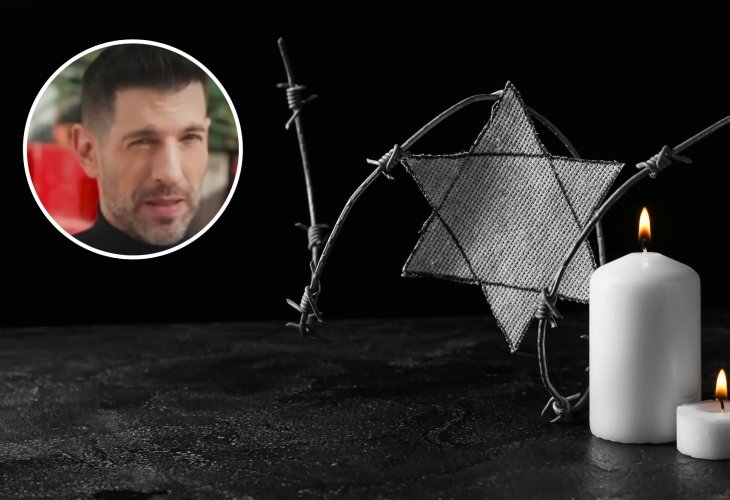The Holocaust
Haim Etgar Shares Family Holocaust Story: A Murdered Aunt, a Lost Twin, and Lessons for Today
Connecting the memory of murdered relatives in Warsaw to the ongoing fight against antisemitism today

For Holocaust Remembrance Day, presenter Haim Etgar shared a deeply sad family story with his social-media followers. “Almost my entire family was murdered in the Holocaust,” he wrote. “Among the victims was my uncle, Stefan, my father’s twin brother, who was only an infant when he was sent to the extermination camp. He was murdered when he was less than a year old.
Families of Holocaust survivors have very few photographs of those who were killed. Most were lost or destroyed and therefore any documentation that surfaces is priceless. Not long ago a distant relative sent me a photo of Adela, my grandmother Lily’s younger sister. Adela was slaughtered in the Holocaust. That picture stunned me. For the first time I understood how beautiful she was and how much she resembled my grandmother.
A Ukrainian guard killed her in the Warsaw Ghetto. He entered the family’s apartment and shot her. Just like that. Simply because she was Jewish he felt it was permitted and necessary to kill her. She was nineteen when she died.”
The past and the present — why it still matters
“And how does my family’s story relate to today?” he asks. “For months the thought has been echoing in my head: yes, today we have a strong, independent state — and yet how similar the events my grandmother and her family suffered are to what happened to us on October 7. Then, in the Holocaust, just as a few months ago, families — children, women and men — were subjected to brutal abuse and murdered, simply because they were Jewish.
Then as now, that evil is shrouded in absurd arguments calmly advanced by our haters: nationalist, racial, supposedly modern explanations, but the crude stitching beneath those claims conceals the very same ancient anti-Semitism. In last century’s Europe, young and old shouted with voices soaked in hatred that the Jews must be dealt with — to eliminate what they called ‘parasites.’
Today they shout at universities: ‘From the sea to the river,’ and again they want to annihilate us. A different era, but the same goal. In camps or at a firing range — whatever it takes to finish us. But as then, so now: despite the hatred, the evil and the ignorance, we will survive and prevail. They can hurt us deeply and make us bleed, but they cannot break us. Lest we forget,” he concludes.
This personal testimony — a recovered photograph, the memory of a murdered nineteen-year-old, and the comparison to contemporary threats — is a reminder that Holocaust remembrance is not only a religious or historical obligation but a civic one: documenting loss, confronting antisemitism, and keeping the memory alive for future generations. Photographs, testimonies and public conversations preserve identity and warn against complacency.

